The Last Service Podcast
The Last Service Podcast explores the narratives of American churches that have closed, consolidated, or merged. But this isn’t a tale of despair; it’s a celebration of good endings, enduring legacies, and the courage to embrace new beginnings. American churches are closing at a pace faster than new ones are emerging, the need for thoughtful conversations around closures is more crucial than ever. By shedding light on the paths taken by these congregations, we aim to inspire and encourage church leaders facing difficult decisions. Every episode is a testament to the hope that lies in finishing with grace, faith, and a sense of the bigger story God is writing. So, whether you’re a pastor navigating the delicate balance of transition or a curious listener seeking wisdom from these poignant narratives, The Last Service Podcast is your haven for stories of faithful endings.
Episodes

4 days ago
4 days ago
In this episode of The Last Service Podcast, Matt McGee is joined by Rick Reinhard—consultant, urban planner, and national thought leader on the redevelopment of faith-based properties. Together, they dive deep into the reality behind the wave of church closures sweeping across North America and explore what congregations and communities can do before it’s too late.
Rick shares his insights from decades of work in municipal planning, denominational strategy, and property reuse. From deferred maintenance and financial transparency to zoning laws and community partnerships, this conversation offers both sobering truths and practical hope.
Whether you’re a pastor, church board member, city planner, or nonprofit leader, this episode will change how you think about the future of church buildings—and the mission they were built to serve.
In This Episode, You'll Learn:
Why up to 100,000 churches may close in the next 20 years
How deferred maintenance and denial quietly destroy congregations
What churches can do now to redevelop or repurpose their property
Why cities, counties, and community foundations must get involved
What “YIGBY: Yes In God’s Backyard” means for affordable housing and church land
Real-world examples of successful property reuse from around the country
Mentioned in the Episode:
“Tsunami of Church Closures” article by Rick Reinhard
"Affordable Housing: YIGBY (“Yes in God’s Backyard”) Movement Seeks to Counter NIMBY Movement" by Rick Reinhard
Gone for Good by Mark Elsdon
About Our Guest:
Rick Reinhard is the founder of Niagara Consulting Group, a consulting firm that helps municipalities, denominations, and nonprofits navigate the complex world of church property redevelopment. He has served as Chief of Staff to the Mayor of Buffalo, worked for the United Methodist Church’s social justice agency, and chaired a national HUD working group on vacant religious properties.
Help Us Spread the Word:
If this conversation sparked new ideas or challenged your assumptions, please rate and review the show—and share it with pastors, city officials, or anyone facing questions about the future of sacred spaces.
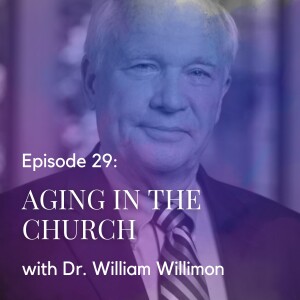
Saturday May 31, 2025
Saturday May 31, 2025
Matt sits down with beloved preacher, bishop, and author Dr. Will Willimon to talk about what it means for churches to age gracefully—and even die faithfully. Drawing on decades of ministry, Willimon unpacks the crisis and opportunity of aging congregations, shares compelling stories of churches handing off their legacy, and invites us to rethink what “decline” really means.
What You’ll Learn:
Why the church's aging population is both a challenge and an opportunity
How congregations facing closure can do so with dignity and hope
The essential role of elders in mentoring, ministry, and legacy
How to tell the truth about decline without giving into despair
Real stories of transformation from dying churches that gave away their buildings, responsibilities, and mission to the next generation
Resources:
All of Dr. Willimon's books: https://www.amazon.com/stores/author/B001IGHNA0
Aging (Pastoring for Life: Theological Wisdom for Ministering Well): Growing Old in Church
Dr. Willimon's Faculty Page at Duke Divinity School
Keywords:church closure, dying churches, aging congregations, Dr. Will Willimon, Methodist church, elder leadership, church revitalization, church legacy, handing off the church, resurrection theology, end-of-life ministry, pastoral care, aging and faith, The Last Service Podcast
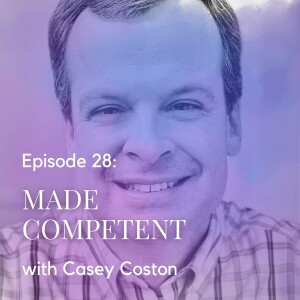
Thursday Apr 03, 2025
Thursday Apr 03, 2025
In this insightful and heartfelt episode, Matt welcomes campus minister and author Casey Coston to discuss the challenges and beauty of a life spent in ministry. With over two decades of experience—from Ole Miss to the University of Delaware—Casey shares the inspiration behind his book Made Competent, and opens up about the trials of leadership, church decline, bivocational ministry, and maintaining authenticity amidst cultural and institutional shifts.
Whether you’re a ministry leader, a member of a shrinking church, or someone navigating the complexities of calling and burnout, this episode offers wisdom, encouragement, and practical takeaways.
🔑 Key Topics Discussed
Why attractional ministry models often fail to engage non-Christians—and what works better
The unique challenges of campus ministry and why seminary often doesn’t prepare you for them
How churches can better support their ministers through family crises and emotional burnout
The spiritual and emotional journey behind Made Competent and the value of long-term journaling
Reframing failure in ministry through a lens of faithfulness and identity in Christ
✨ Three Key Takeaways for Declining Churches
Shift from Attractional to Relational MinistryBig events and flashy programs often attract Christians, not seekers. Churches in decline should pivot toward intentional, relationship-based outreach rooted in authenticity and presence, especially when targeting unchurched communities.
Reframe Decline with a Missionary MindsetDecline doesn’t always equal failure. Instead, view your church as a missionary outpost. Embrace bivocational models and the missionary mindset—where fewer resources don't mean lesser impact, but a new context for faithful ministry.
Support Ministers with Tangible CareWhen pastors are in crisis—whether from personal or church-related issues—the body of Christ must step up. Small gestures like meals, childcare, or handwritten notes remind ministers they are not alone. In declining churches, this pastoral care culture is essential during their search for new ministry opportunities.
Resources Mentioned
Made Competent by Casey Coston (available on Amazon, Walmart, and Kharis Publishing)
The God Ask by Steve Shadrach – a practical guide to support raising in ministry
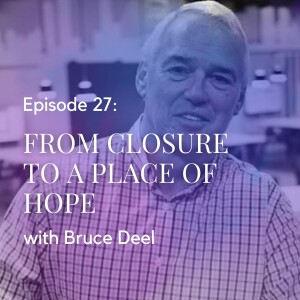
Wednesday Mar 05, 2025
Wednesday Mar 05, 2025
In this powerful episode of The Last Service Podcast, Matt sits down with Bruce Deel, CEO of City of Refuge, to explore an extraordinary story of transformation. Originally tasked with closing Mission Church at 14th Street, Bruce found himself in the midst of a divine calling to revitalize the church into a thriving ministry center. Discover how compassion, trust, and a willingness to adapt led to a vibrant community that continues to serve Atlanta's most vulnerable populations.
3 Key Takeaways:
Embrace the Unexpected: Sometimes what feels like the end is just the beginning of a divine redirection. Bruce Deel walked into Mission Church expecting to close its doors, but instead, God revealed the needs of the community right outside their door. If your church feels like it's in its final chapter, don't underestimate the power of a single act of obedience or a moment of compassion.
Be with and choose to trust first: ministry often lies beyond the walls of comfort. Bruce and his family moved into a 65-year-old church building to live among those they served. His story is a powerful reminder that loving people where they are—and showing up every day with open hearts—can ignite the kind of transformation that brings new life to a church.
Redefine Church Through Acts of Compassion: When Mission Church shifted its focus from traditional services to meeting the practical needs of the hurting, it blossomed into a beacon of hope. They attracted new members by meeting needs rather than new worship or programs. For churches struggling to find their way, the answer might not be in the next program or a new strategy but in stepping into the mess of real life, offering a meal, a bed, a prayer—creating a space where the vulnerable and the broken are welcome. That sort of crowd may not be able to tithe much, but if your church is on the brink of closure... what do you have to lose?
Resources:
www.cityofrefugeatl.org
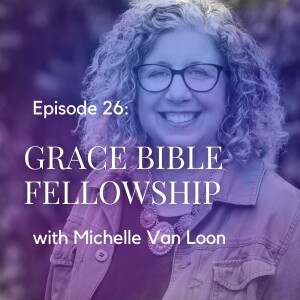
Wednesday Feb 05, 2025
Wednesday Feb 05, 2025
In this episode of The Last Service Podcast, author and speaker Michelle Van Loon discusses the realities of church closures, the challenges of leadership, and how congregations can embrace endings with faith and wisdom. Michelle shares insights from her Plough article "A Good Death for Dying Churches" and her personal experiences with church transitions, including the closure of Grace Bible Fellowship.
Three Key Takeaways:
1️⃣ Prioritize Discipleship Over Mere Survival – Michelle emphasizes that churches facing closure should focus on shepherding their members through the transition, viewing the process as an opportunity for discipleship rather than solely striving to keep the institution alive.
2️⃣ Church Self-Awareness Matters—Some churches are founded on a reaction to past experiences rather than a sustainable vision. Grace Bible Fellowship's close friendships, relational style, and consensus decision-making were in stark contrast to its abrupt ending.
3️⃣ Closure Needs Pastoral Care – Ending a church should be a deeply intentional and pastoral process, not a rushed decision. Grieving members need guidance, and there are growing resources to help communities close well.
🔗 Learn more about Michelle’s work at MichelleVanLoon.com and explore her reflections on church transitions in her Plough article: "A Good Death for Dying Churches".
🎧 Listen in as we discuss how churches can navigate the end of their life cycle with grace, care, and discipleship at the center.
#ChurchLeadership #Discipleship #ChurchClosure #FaithfulEndings #MichelleVanLoon #TheLastServicePodcast
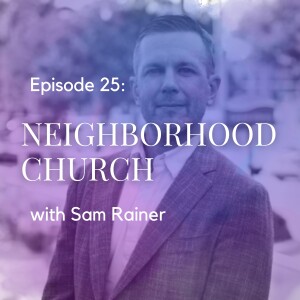
Tuesday Jan 07, 2025
Tuesday Jan 07, 2025
In this episode of the Last Service Podcast, Matt welcomes Sam Rainer, pastor, church consultant, and president of Church Answers, for a candid discussion about the state of the American church. Together, they explore the challenges facing congregations today, from declining membership to generational shifts in engagement. Sam shares actionable insights on how churches can revitalize, stay relevant, and impact their local communities. Whether you're a pastor, church leader, or member, this episode is packed with wisdom to inspire and guide your ministry.
Key Takeaways:
Community-Centered Ministry: Churches thrive when they shift focus from attracting crowds to deeply engaging their local neighborhoods.
Opportunities for Mid-Sized Churches: With the decline of the mega-church movement, mid-sized churches hold untapped potential for growth and generational outreach.
Breaking the Decline Cycle: Strategic reinvention, mergers, and prioritizing multi-ethnic ministry can help churches overcome decline and build a sustainable future.
Topics Discussed:
Sam’s personal journey from business to ministry
The purpose and tools offered by Church Answers
Key challenges facing American evangelical churches today
The rise of Gen Z’s religious commitment and its implications for church leadership
The importance of multi-ethnic ministry in a changing demographic landscape
Strategies for mid-sized churches to grow and serve their communities
How to navigate the end of a church lifecycle with grace and kingdom purpose
Quotes from the Episode:
“The church is not a destination for crowds; it’s a vehicle to go to your neighborhood and the nations.” – Sam Rainer
“You can grow a church so inward that it dies. The Great Commission must always be at the forefront.”
“Breaking the church lifecycle requires intentional renewal and reinvention, one step at a time.”
Resources Mentioned:
Church Answers – Tools, coaching, and resources for church revitalization and growth
Graphs About Religion by Ryan Burge – Website
The Surprising Return of the Neighborhood Church by Sam Rainer
Connect with Us:
Visit our website for more episodes and resources: lastservicepodcast.com
Rate & Review:If you enjoyed this episode, please leave a review on Apple Podcasts or your favorite podcast platform. Your feedback helps us reach more listeners!
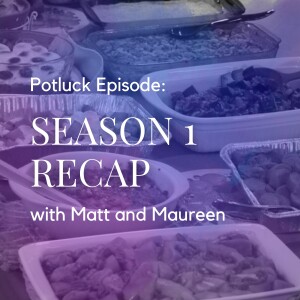
Tuesday Dec 24, 2024
Tuesday Dec 24, 2024
🎙️ Episode HighlightsIn this special recap episode, host [Matt] reflects on the journey through Season 1 of The Last Service Podcast. Joined by his wife, Maureen, they dive into the heart of the podcast’s mission—exploring church closures, transitions, and the faithful endings that can lead to new beginnings.
✨ Key Topics Covered:
Season Favorites:
Episode 5: The heartfelt story of Rehoboth Presbyterian in Atlanta.
Conversations with churchrealty.com's John Muzyka on the pastoral care side of realty.
Insights from Bob Smeitana and Mark Elsdon on church decline in America.
Legal knowledge from Erika Cole and the Good Friday Collaborative episodes.
Lessons Learned:
The role of pastoral care in closures.
How demographic and cultural shifts impact churches.
The importance of self-awareness and community support in navigating change.
Personal Reflections:
Matt shares insights from guiding a non-profit closure and the power of intentional endings.
Key takeaways: "Thank you, I love you, I’m sorry, I forgive you."
💡 Why ListenWhether you’re navigating a church transition, a non-profit leader, or simply curious about the dynamics of faithful endings, this recap offers wisdom, encouragement, and practical advice.
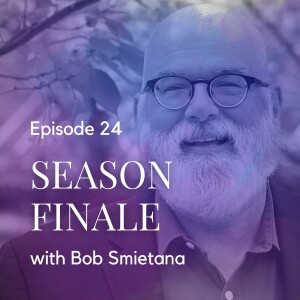
Tuesday Nov 26, 2024
Tuesday Nov 26, 2024
In this powerful season finale, Matt sits down with the legendary religion news reporter and author Bob Smietana to explore the pressing realities facing churches today. From demographic shifts to the challenges of revitalization, Bob shares insights from his acclaimed book, Reorganized Religion, and personal experiences with church closures. This episode is packed with heartfelt stories, actionable insights, and a message of hope for communities navigating change.
Key Topics Covered:
The decline of church attendance: What's driving the numbers?
Demographic and cultural changes impacting church vitality.
Stories of resilience: Churches finding new purposes through partnerships and creativity.
When it's time to close: The emotional and practical realities.
Bob’s personal reflections on his own church's closure.
Highlights You Won’t Want to Miss:
[5:15] Why the American church boom of the mid-20th century is over.
[15:50] The “Walmart effect” of church consolidation and its impact on smaller congregations.
[28:30] What makes a “good ending” for a church, and how planning ahead can make all the difference.
[35:40] Heartwarming stories of community and music from Bob’s former church.
[46:10] How one pastor helped his congregation embrace closure with dignity.
3 Key Takeaways:
1. churches are closing mainly due to changes in demographics and society. What worked to grow churches in prior decades no longer works, and it is often difficult for churches with older buildings to adapt to a new environment.
2. It's better when a church's building, property, and assets stay connected to the mission when transferring ownership.
3. Bob reports on and has written about many churches that have closed. When he and his wife experienced a closing with the congregation they cared about, they experienced a sense of loss and grief. But they also felt sent forth by a community that helped shape their lives. Maybe a church can still be about sending long after it has stopped being able to bring people into a building.
Resources Mentioned:
Reorganized Religion: The Reshaping of the American Church and Why it Matters by Bob Smietana
The Great Dechurching: Who’s Leaving, Why Are They Going, and What Will It Take to Bring Them Back? by Jim Davis
The Good Friday Collabrative's 5 Stages of Church Closure
Share this episode with friends and fellow churchgoers to spark meaningful conversations about the future of faith communities.
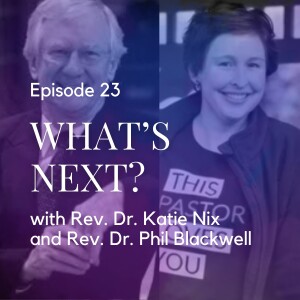
Tuesday Nov 12, 2024
Tuesday Nov 12, 2024
In this episode of The Last Service Podcast, Matt dives into a conversation with Reverend Dr. Katie Nix and Reverend Dr. Phil Blackwell, pastors who led two congregations through a unique journey of merger and renewal. They share the incredible challenges and blessings of bringing together two legacy churches into a unified, mission-focused community. This merger took place amidst the complexities of the pandemic, highlighting the resilience, adaptability, and faith that fueled their journey.
Dr. Nix and Dr. Blackwell explore what they learned in this process, from honoring each congregation's history to forging a shared vision for the future. They discuss practical insights into measuring success beyond traditional metrics, fostering a welcoming environment, and asking questions that prompt creative, forward-thinking ministry. Their story offers inspiring takeaways for church leaders, members, and anyone invested in the future of faith communities.
Key Takeaways:
Embrace Legacy with Purpose – The success of University and Grace UMC's merger hinged on respecting the legacies of each congregation while building a unified identity that serves both past and future communities.
Measure Success Beyond Numbers – Traditional metrics like attendance are important but don't paint the whole picture; focus also on creating spaces for spiritual growth, and meaningful community impact.
Ask Courageous Questions for Renewal – Continuously revisit your church's mission and ask, "What is God calling us to do next?" Embracing imagination and openness can reveal new paths for ministry and outreach.
Listen to The Doctors are In and the story of Grace UMC's merger with University UMC here:
https://podcasts.apple.com/us/podcast/the-doctors-are-in/id1706168185
https://podcasters.spotify.com/pod/show/kathryn-nix/episodes/The-Doctors-Are-In--S3-E2-A-Pastors-Perspective-on-Our-Church-Merger-e2q3mt6
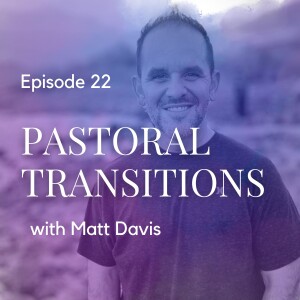
Tuesday Oct 29, 2024
Tuesday Oct 29, 2024
In this episode of The Last Service Podcast, we dive into the profound journey of pastoral transitions with Matt Davis, host of the Life After Ministry Podcast. Matt shares his personal experiences of stepping away from ministry after a moral failure and navigating life outside the church. This episode explores the emotional and logistical challenges pastors face when leaving a church and provides guidance on managing these transitions with grace and support. Davis's story is a testament to resilience and purpose, reminding us that even in difficult seasons, there is potential for growth and reorientation.
Key Takeaways:
Creating Compassionate Exits – Matt emphasizes that churches must prioritize compassion and dignity during pastoral exits, advocating for "kingdom outplacement." By offering structured support like coaching, counseling, and resume assistance, churches can model Christ-like love and compassion in difficult seasons.
Provide Financial and Emotional Support – Financial insecurity frequently accompanies pastoral exits, leaving pastors in challenging positions when they are let go or the church closes. Be generous with severance and communicate with compassion.
The value of third party help - Difficult transitions for pastors or congregations at the end of their life can benefit from third party wisdom and guidance. Bringing in a third party, like Pastoral Transitions, demonstrates a commitment to all people involved and a determination to end well.
Additional Topics Covered:
The spiritual struggle pastors face in redefining their sense of calling
How structured transitions can contribute to healthier, more unified churches
Insights on how churches can foster transparency and support during challenging pastoral changes
Resources:
www.pastoraltransitions.com
Life After Ministry Podcast








